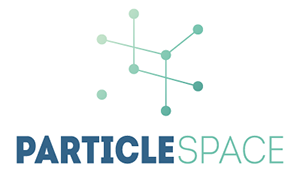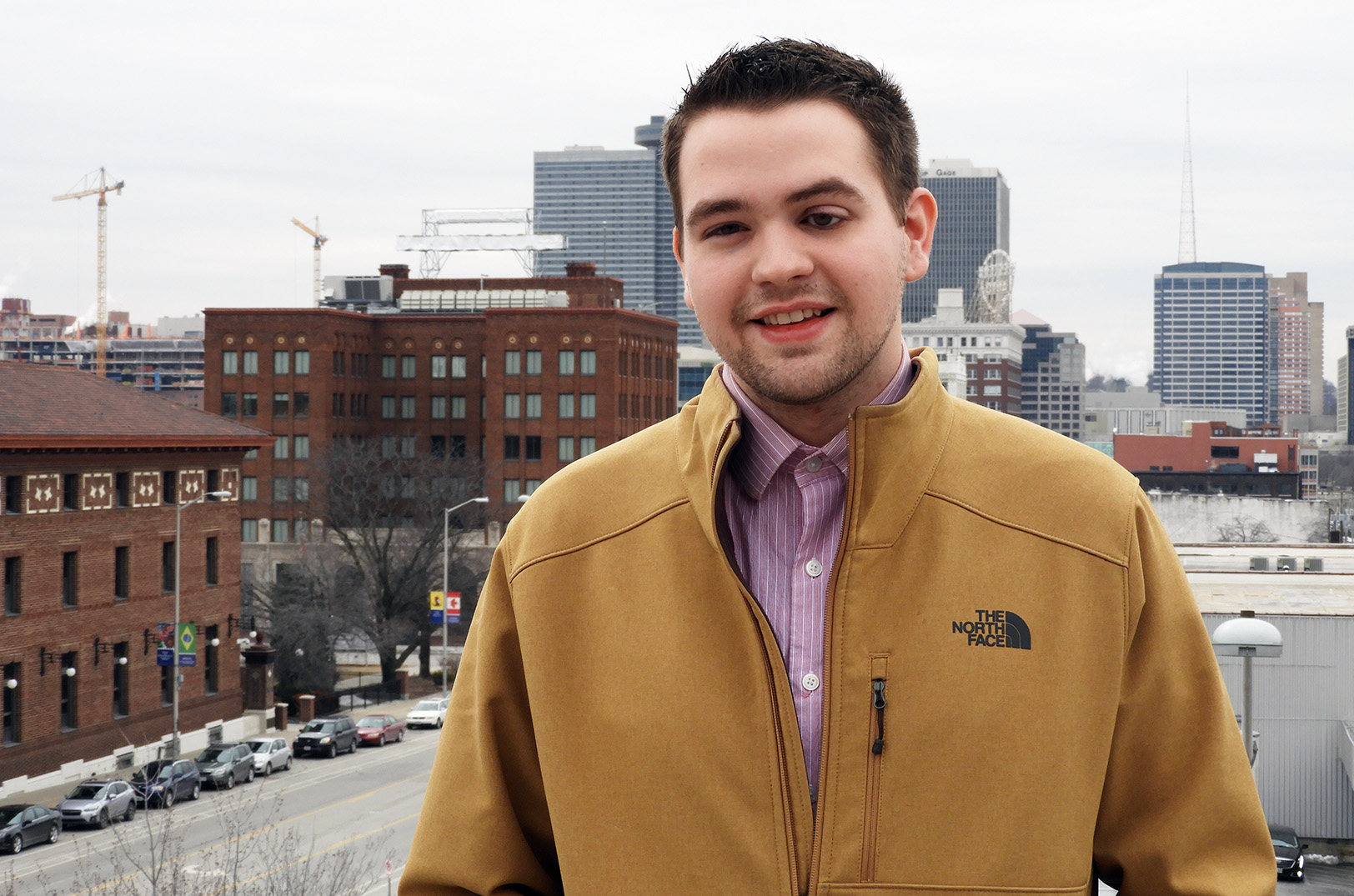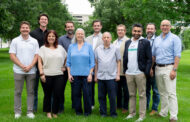Passion for building breathes life into a successful startup and the collective ecosystem, said David Biga.
“[Builders] are a critical piece to our startup community,” said Biga, founder of Kansas City-based SaaS firm Particle Space. “If you don’t have people who care to build and offer things to those before you — then why come here? I’ve been fortunate to be able to visit other startup ecosystems and you can feel the energy there — it’s because of that mindset of which, in Kansas City, we just don’t have enough built.”

Founders: David Biga
Founding year: 2015
Employee count: Two
“Ever since I was 10, I knew what I wanted to be,” he added. “I wanted to be a software engineer. I loved development, I loved building, and taking ideas to make them come to life. I want to serve as an example for the next generation because we need people to build, and more people to go into STEM.”
Software engineers set the foundations of any successful tech startup, said Biga, noting the hustlers are often overlooked in the light of a visionary founder.
Biga helped build such foundations for several notable KC-based startups, like pre-acquisition EyeVerify (Zoloz) and Donald Hawkins’ CitySmart, he said, noting that throughout such experiences, the launch of his own startup percolated.
Particle Space creates interactive spaces through a sensor integration platform to give property owners the ability to get a real-time look into their homes or spaces, said Biga, noting the idea was born out of a desire to further the culture of increased awareness and apply it to real estate — an industry “outdated by legacy” and ripe for innovation.
“Back in the spring of 2015, I was driving home past this apartment complex and I got this vision of like, ‘What if I could fly above this complex and see every single activity whether John’s late on rent or there’s a work order or even a fire?’” he said. “I just immediately went home and created a prototype. … I’ve been going ever since.”
Click here to learn more about Particle Space.

“More recently, we’ve been exploring the safety space and getting into [preventing] active shooters, which [makes sense] because our platform doesn’t involve any hardware,” he added. “We just plug in and go.”
Through the use of sensors and the platform’s predictive analyses, schools can have the ability to pinpoint the exact location of a shot being fired, trigger wide-scale lock downs, and even provide students or police officers with a mobile app showing dangerous areas within a school, Biga explained.
“We’d be able to bypass the chaos and show them where a critical event has occurred,” he said. “The same thing could apply for the environment. We could show our fire departments where fires are and they wouldn’t need to wait outside because they already have the floor plans.”
Particle Space is currently trying to implement pilots in several school districts, he added.
“As we become more connected, I think it’s just part of our advancement to understand the inner workings of the space that you manage, work at, or live in,” he said. “I think providing that helpful information to people is a valuable resource for development, personal gain or for your business.”
The intention is for Particle Space to reach national scale, Biga said, noting that though it has not been needed thus far, reaching for outside funding might follow once the startup becomes more established.
“I can build the entire system, so I’m not using a lot of resources and have been able to keep costs extremely low,” he said.
Mentors like Donald Hawkins and previous workers from EyeVerify, as well as other work experiences, have been tremendous assets throughout the journey of the startup, he added.
“You can’t do it alone — you can’t be the one-man shop,” said Biga. “I won’t forget all the people that I’ve asked for help, and that’s key. It’s critical to be able to share those resources, connections.”
Go to the 32:45 mark to see Biga’s 1 Million Cups presentation.





































